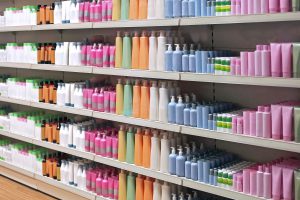We live in time of “green culture”. There is no doubt about it
For some reason the cosmetic industry needs to be even more concerned than others for the simple fact that it deals with beauty and harmony itself. But up to what point is this true? Is the majority of consumers striving to make cleaner, greener and more sustainable choices when it comes to their beauty and personal care product purchases?
We need to understand the question before we will be able to answer it.
A study conducted by The Benchmarking Company surveyed more than 7,300 U.S. female beauty consumers about sustainability. The respondents, when asked to select the most important attributes to them when considering the purchase of a beauty or personal care product, did not opt for products that contained sustainable ingredients or sustainable packaging.
American Women care most about:
- efficacy (78%)
- price (71%)
- positive consumer reviews/ claims (47%)
- natural ingredients (30%)
- convenience (26%)
- sustainable ingredients 6%
- sustainable packaging 3% of consumers
- organic ingredients 7%
As we said, this question in and of itself is not exhaustive on the matter., In fact, these stats do not reflect how consumers feel about the commitment that brands communicate concerning “protection of the environment” and the perceptions women have about their own commitment to a healthy environment.
72% of all Interviewed warmly agreed that, “The goal of sustainability is to produce what is needed for civilization while protecting the Earth/environment from damage.”;
33% of survey respondents replied emphatically “yes” that they would be willing to pay more for a brand or product that has sustainable manufacturing processes, while 53% said they might be willing to pay more;
16% even say that they always consider the impact of the manufacturing process of their favorite cosmetic products on the planet before making a purchase;
50% say they “ sometimes” pay attention to whether or not the beauty or personal care items they buy are made from recyclable materials;
33% always pay attention.
The most highly-considered properties of a product in terms of sustainability are: cruelty-free status, non-harmful ingredients and ethical manufacturing processes.
All these number actually indicate that the market has been paying more and more attentions to the “green culture” : we understand that important factors like price and efficacy still play a major role in deciding on a purchase, but we also have to acknowledge that the Green people are no longer a mere niche market, as they grow by the day spreading their culture and demanding that companies make a stronger commitment. And this is a revolution that is going to involve more and more people over the next few years.
What is the attitude of the market leaders?
Those who know how to surf the green trends.
There are brand who have developed a winning strategy in dealing with green topics and using them to communicate with their customers. One example is one of the most popular brands for lovers of environmentally friendly policies.
The Body Shop is a well known British brand who developed an image through an important campaign in favour of different ecological topics, the first of which being their commitment to the “animal free testing” which they implemented with a big investment long before it become a trend followed by many others.
In recent years The Body Shop has been studying possible ways to reduce the impact of plastic and decided to devote themselves to improve the recycling. Their new challenge is Recycling PET Plastic with Fair Trade plastics. To achieve this goal they spent two years building a solid supply chain that recycles PET packaging with waste plastic collected in Bangaluru India. In this area of India they will hire 2500 waste pickers who will receive a fair price for the plastic waste and access to better working conditions.
The Body shop has already started using these Community Trade recycled plastics in its 250ml Shampoo and conditioner bottles: their goal is to replace all their consumption of recycled plastic with Fair Trade recycled plastic within 3 years.
This
is going to have an enormous impact through their communication campaigns, grabbing the attention of their
customers and of all the people who are concerned about environmental issues.
These customers are not a just a insignificant minority any more; they are a growing movement which
can definitely change the balance in
future markets.
Denise Herich is
co-founder and managing partner at The Benchmarking Company (www. benchmarkingcompany. com), which provides marketing and strategy
professionals in the beauty and personal care industries with need-to-know
information about its customers and prospects through custom consumer research
studies, focus groups, its annual PinkReport and consumer beauty product
testing for marketing claims. The company’s latest report is The New Age of
Naturals, which provides a detailed look at the U.S. beauty and personal care
consumers’ affinity for natural and organic beauty and personal care products
and the motivators and influencers that drive consumers to purchase more
natural and organic products than ever before.











